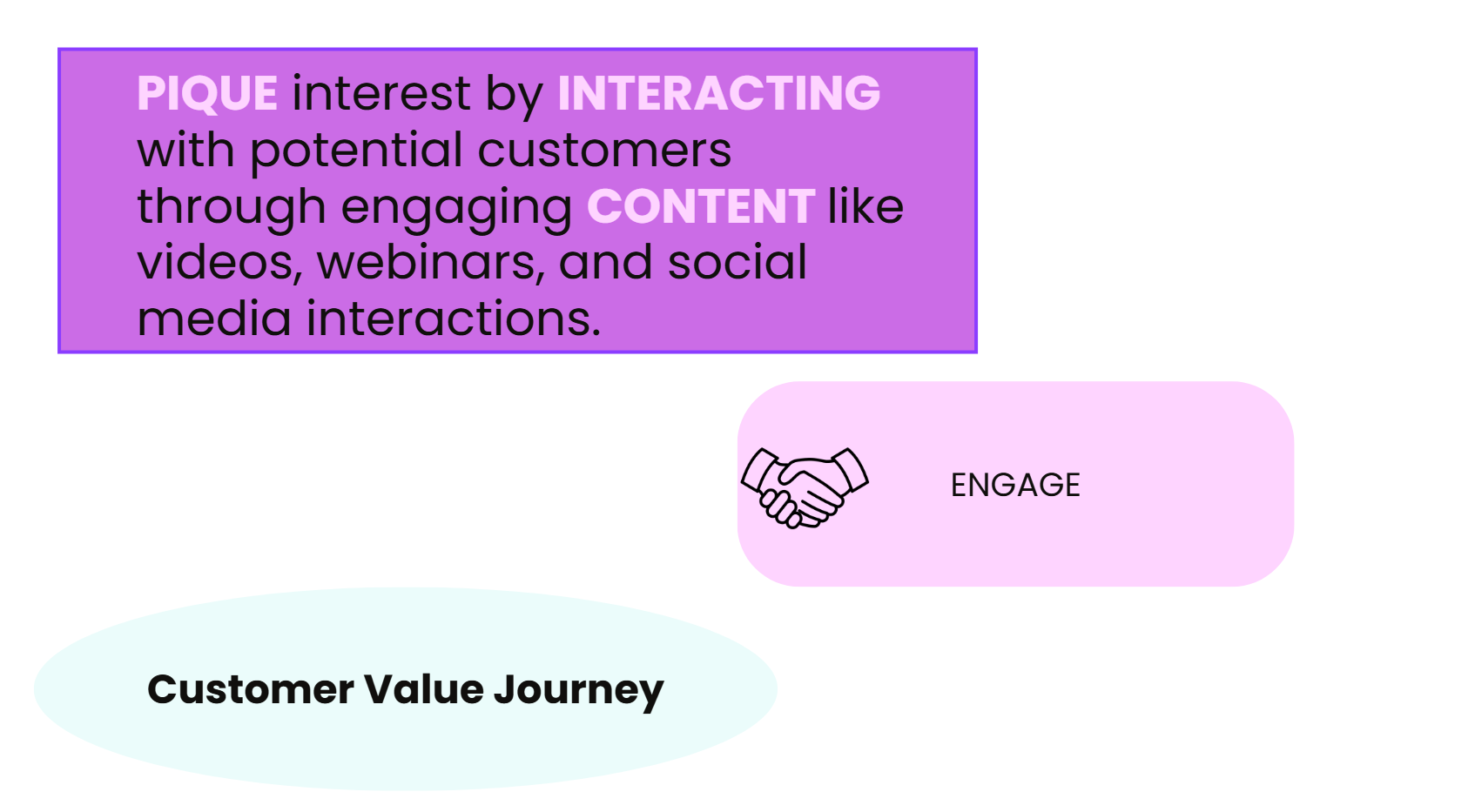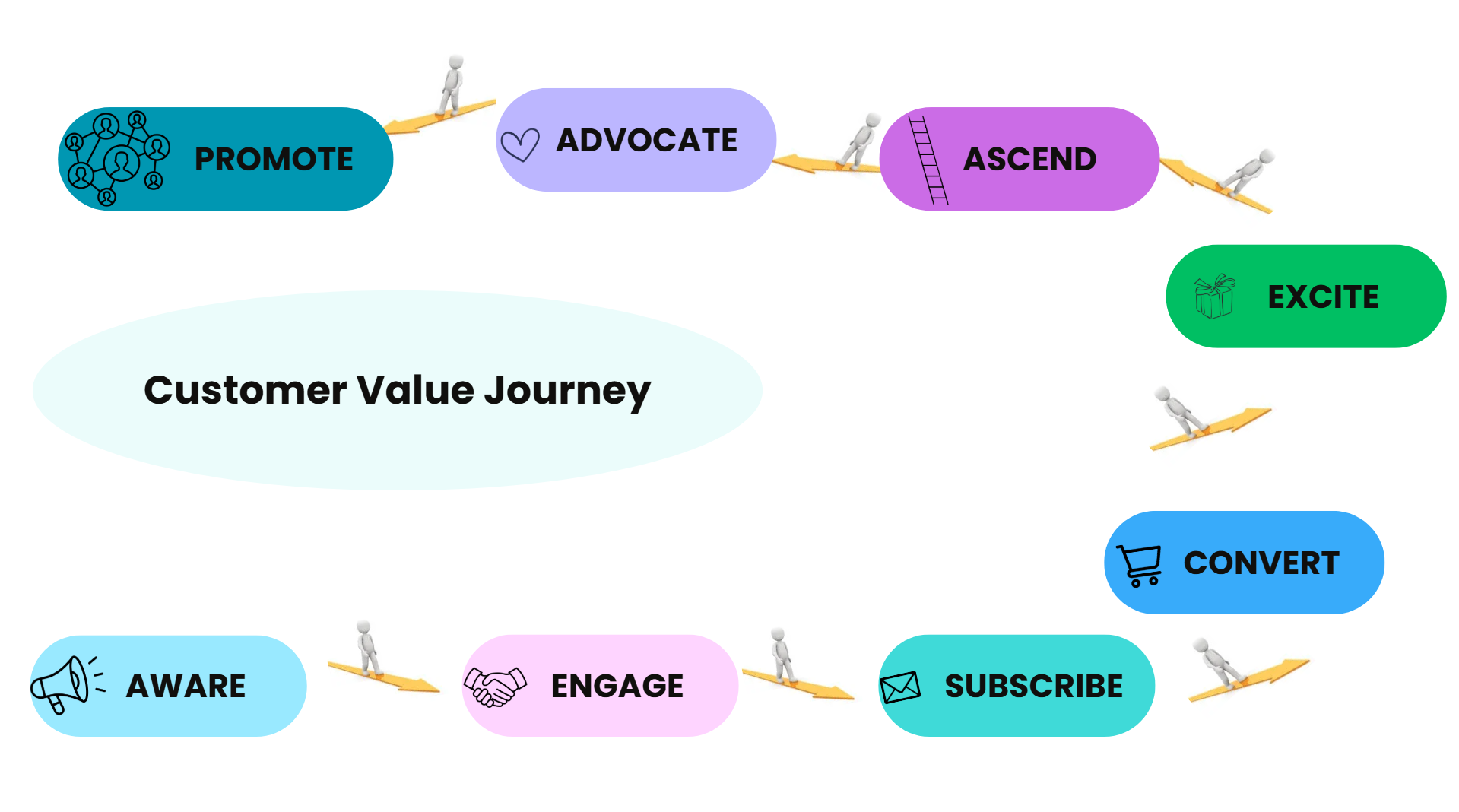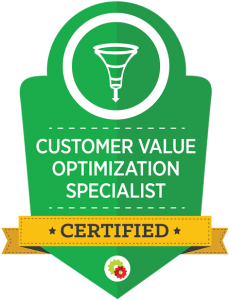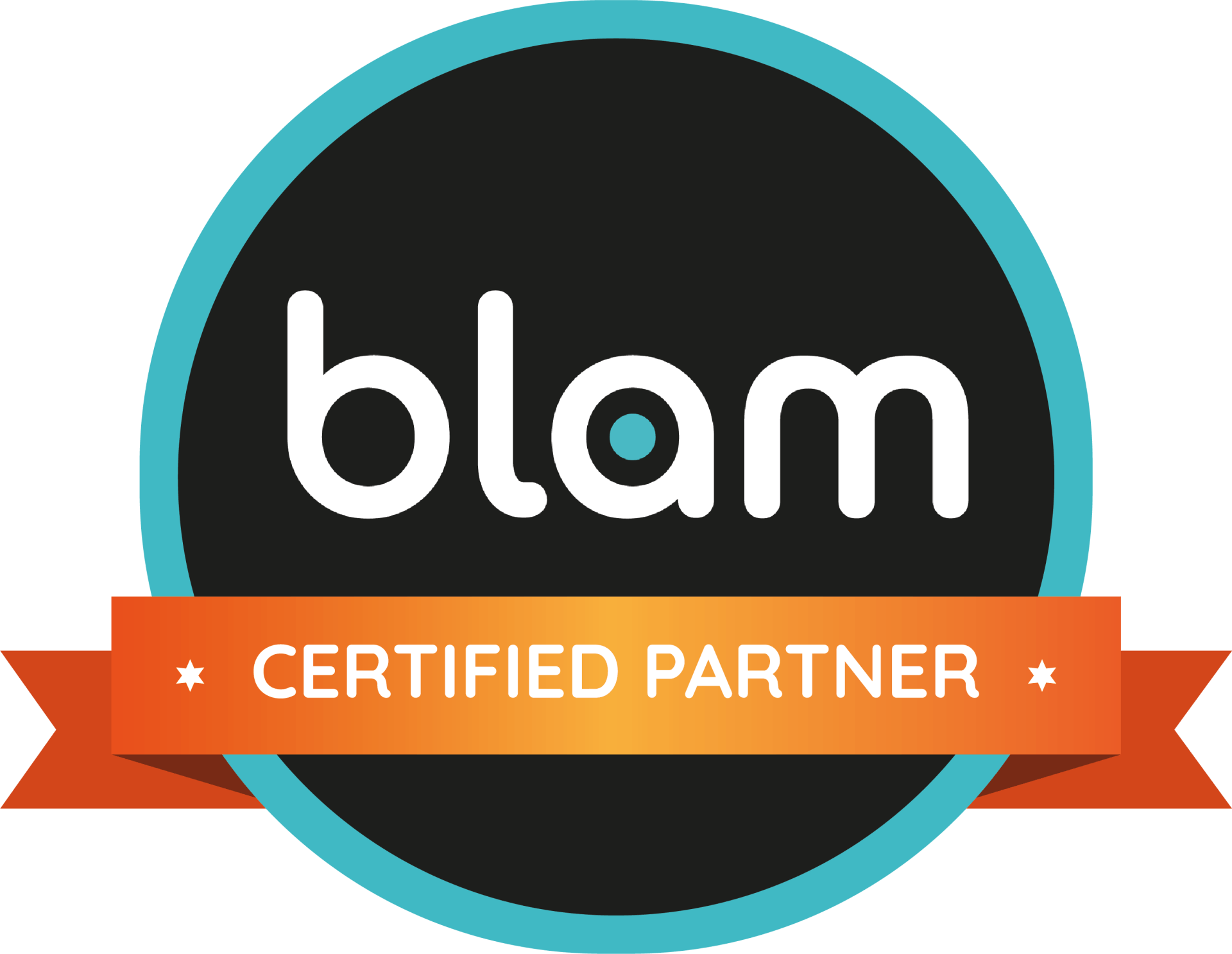The Customer Value Journey - Step 2: Engage
Engage - Welcome back to our 8-part series on the Customer Value Journey (CVJ) in Digital Marketing! Today we're going to be taking a look at the "Engage" leg of the journey.

In the first installment, we covered the Awareness stage, where we discussed how to make your potential customers aware of your existence. Now that you’ve got their attention, it’s time to move on to the next stage: Engage.
Imagine you're hosting that same party. You've managed to get a crowd to show up (by creating awareness), but now what?
You need to engage them, keep the atmosphere lively, and make sure everyone is having a good time. Otherwise, they'll quickly lose interest and may even leave.
Let’s look at a business example.
Suppose you run a cozy café in Kildare. You've already made people aware of your café through social media and local advertising. Now, it's time to engage them and build a connection.
To engage your audience, you might:
- Host a "Meet the Barista" event: Invite your customers to come in and meet the talented baristas behind their favorite drinks. Share stories, answer questions, and showcase the passion and expertise that go into every cup.
- Share behind-the-scenes content: Post videos and photos of your café's daily operations, such as baking fresh pastries or crafting latte art.
- Run a social media contest: Encourage your followers to share photos of their favorite drinks from your café with a specific hashtag. Offer a prize, such as a free coffee or a discount, to the most creative entry. Prompt participants to tag friends who would love to try your café.
Here's some more ideas: When managing social media for our clients, the 'clever clogs content creators' at Right Hand Consulting include reader engagement lines such as:
- Ask what would you have done in this situation? or, What's your favourite side with your coffee?
- Take part in a poll? Which do you prefer of these three options if we were to add them to the menu? Vote in our poll.
- Tell us about when you experienced something like this. (Story... The most embarrassing.... funniest... etc)
- Share your photos of...
Why is Engagement important?
Engagement is crucial because it’s the stage where potential customers start interacting with your brand. They might not be ready to make a purchase just yet, but they're curious and want to learn more. Your goal is to provide them with valuable and relevant content that keeps them coming back for more.
Here are some proven strategies to help you ace the Engage stage:
- Content Marketing: High-quality content is key to engaging your audience. Create blog posts, videos, infographics, and social media content that address their pain points, answer their questions, and provide valuable insights. The more helpful and informative your content, the more likely they are to engage with it.
- Email Marketing: Build an email list and send regular newsletters with valuable content. Share tips, updates, and exclusive offers to keep your audience engaged. Personalize your emails to make your subscribers feel special and appreciated.
- Social Media Interaction: Social media is a powerful tool for engagement. Respond to comments, answer questions, and participate in conversations. Share user-generated content, run polls, and create engaging posts that encourage interaction.
- Webinars and Live Events: Host webinars or live events to engage with your audience in real-time. Provide valuable information, answer questions, and showcase your expertise. This helps build trust and credibility with your audience.
- Interactive Content: Create interactive content such as quizzes, surveys, and contests. These types of content are not only engaging but also provide valuable insights into your audience's preferences and behavior.
Customer Feedback and Reviews
Customer feedback and reviews left by your happy customers are invaluable for the engagement phase with new ones. Encourage and showcase positive testimonials on your website and social media channels. Respond to reviews—both positive and negative—with gratitude and professionalism. This not only shows that you value your customers' opinions but also builds trust and credibility with potential customers. Remember, a genuine, heartfelt response can turn a dissatisfied customer into a loyal advocate.
Did you know?
Did you know that visual content is 40 times more likely to be shared on social media than other types of content? And that interactive content generates twice as many conversions as passive content? These stats highlight the importance of using engaging visuals and interactive content to keep your audience interested.
Community Building
Building a community around your brand can significantly boost engagement. Create and nurture online communities where your customers can connect with each other and with your brand. This could be a Facebook group, a subreddit, or a dedicated forum on your website. Share valuable content, facilitate discussions, and provide support. A strong community fosters a sense of belonging and loyalty among your customers, making them more likely to engage with your brand and advocate for it.
Ready to dive into the next stage of the Customer Value Journey? Stay tuned for Part 3, where we'll explore the Convert stage. Until then, happy engaging! 🚀

Contact Us












